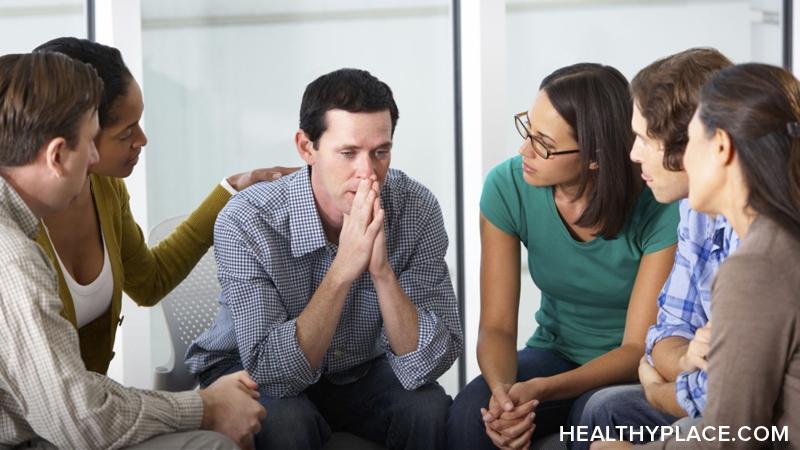Coping Skills for Battling Depression: Here’s What You Need

Using coping skills for depression can be very effective, but battling depression is an active process that takes patience, practice, and persistence. Because depression impacts all facets of life—health, relationships, work, leisure, and more—it’s important to know what you need for the battle, the weapons you'll need for when you’re really depressed. Successfully battling depression requires proper weapons, or different coping skills for depression, that will help you conquer it.
Multiple Paths, Many Coping Skills for Depression
Something very important that you need in order to battle depression is openness and flexibility to try many different coping skills as well as a willingness to take many paths to get over depression. Depression is complex, and it takes multiple approaches from multiple fronts in order to conquer it (Self-Help for Depression: What Helps?).
The journey to a depression-free life can be divided into six different roads (Wright & McCray, 2012):
- The thoughts-and-actions path
- The biology path
- The relationship path
- The lifestyle path
- The spiritual path
- The mindfulness path
The article "Stop Being Depressed. Use These Self-Help Tools Now" examines important tools for use on the thoughts-and-actions path. The biology path involves medications. Having a conversation with your doctor about depression medication and whether it’s right for you will help you decide whether to travel down the biology path or take a detour.
Depression Coping Skills for the Paths to Wellness
The relationship path is about ending isolation and loneliness that are too frequently a part of depression. A few relationship-building coping skills include:
- To cope with depression, pick one person you feel comfortable with to confide in. Having someone to talk to safely about your experiences with depression helps the healing process; it’s powerful to know that someone else “gets it”.
- Commit to connecting to this person at least weekly, and more often if it’s practical.
- Reciprocate. Friendship is about giving and receiving, so make sure the other person feels heard, too.
The lifestyle path involves living fully. It’s about intentional choices made, starting right now, to use coping skills to create a quality life that you can enjoy. The lifestyle path involves using positive coping skills for depression, such as:
- Eating well for brain and body health
- Having a sleep routine so you feel energized during the day
- Balancing your life
- Seeking therapy
- Reading the best books on depression
- Exercising
- Journaling
- Engaging in pleasurable activities.
The spiritual path is about pulling yourself out of depression by connecting you to a deep sense of self and the world beyond you. It’s about feeling connected to something greater, whatever it is that you find deep and greater than yourself (Are Support Groups for Depression Really Helpful?). For some people, spirituality is a religion. For others, it might be nature or the universe. Spirituality isn’t a particular belief but instead is a way of thinking beyond yourself. Some specific coping skills on the spiritual path include
- Appreciating beauty by finding and admiring something you find delightful every day
- Broadening your perspective by considering things from different viewpoints
- Connecting with nature
- Avoiding burnout by stepping away and doing something that inspires a sense of awe
- Participating in your church, synagogue, mosque, or other places of worship
The mindfulness path involves being fully present in your life. Like the others, this one can begin immediately. You don’t have to be depression-free to practice mindfulness. Mindfulness has been shown to reduce depression by helping them learn to get out of the mind and into the real world. Mindfulness can involve
- Meditation
- Walking and experiencing the world fully
- Doing activities with your full attention, thinking about your senses rather than on the thoughts in your head
Coping skills for depression are many and varied. Attend to each of the different paths to wellness, use coping skills every day, and you’ll find that you’re winning the battle with depression (10 Things to Help with Depression).
APA Reference
Peterson, T.
(2021, December 23). Coping Skills for Battling Depression: Here’s What You Need, HealthyPlace. Retrieved
on 2025, April 29 from https://www.healthyplace.com/self-help/depression/coping-skills-for-battling-depression-here-s-what-you-need
 Support groups for depression, when done correctly, can be extremely helpful for people experiencing depression. By their very nature, depression support groups provide something essential for recovery: a social connection.
Support groups for depression, when done correctly, can be extremely helpful for people experiencing depression. By their very nature, depression support groups provide something essential for recovery: a social connection.


 Discover what makes a relationship unhealthy and the impact an unhealthy relationship has on a person.
Discover what makes a relationship unhealthy and the impact an unhealthy relationship has on a person.



